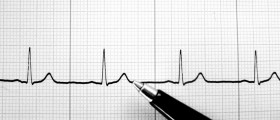
Heart failure can be a serious, and even fatal, problem. It is classified according to the relationship between symptoms and the effort necessary to provoke them. Breathlessness, tachycardia, edema and low cardiac output are all symptoms of heart failure.
Examination
If you are undergoing treatment for heart failure, you will likely be subjected to laboratory tests. These tests might include a complete blood count, studies of the kidneys and liver as well as 2-dimensional echocardiography. Two things that doctors will look to examine through the chest radiograph are the shape and size of the cardiac silhouette, and also pulse oximetry. The latter is useful in the assessment of the presence of hypoxemia and the severity of the heart failure.
Care
In the case of a heart failure patient, care will consist of the stabilization of the condition. Doctors will look to provide a correct diagnosis and will try to begin pain relieving therapies as soon as possible. If surgery is required, it will take the form of coronary artery bypass grafting, heart transplantation, valve replacement/repair, cardiac resynchronization therapy and the implantation of ventricular assist devices.
Clearly, the target of pharmaceutical therapy will be to reduce morbidity levels and to avoid the onset of any complications. Medications that might be used in the treatment include morphine, diuretics, inotropes, digoxin and oxygen. Causes and forms
Heart failure can be caused by structural abnormalities that can lead to problems with the arterial circulation, myocardium, pericardium or cardiac valves. These abnormalities can be congenital or acquired.
Heart failure can also take various forms. One such form is diastolic heart failure. It is normally caused by coronary artery disease, diabetes, hypertension, aortic stenosis, hypertrophic or restrictive cardiomyopathy and constrictive pericarditis.
Acute heart failure can be caused by myocardial infarct, arrhythmia, sepsis, myocarditis and acute valvular regurgitation. Acute heart failure can also be drug induced.
Another form is systolic heart failure. This form might occur due to diabetes, hypertension, valvular heart disease, myocarditis, arrhythmia, congenital heart disease or coronary artery disease. Systolic heart failure might also be caused by excess drug abuse.
Right heart failure takes the following forms: ischemia, pulmonary valve stenosis, pulmonary hypertension, left ventricular failure, pulmonary embolism, neuromuscular disease and chronic pulmonary disease.
The following causes fall into the category of high output heart failure: anemia, hyperthyroidism, beriberi heart disease, systemic arteriovenous fistulas, Paget disease, Albright syndrom, multiple myeloma, pregnancy, carcinoid syndrome, polycythemia vera and glomerulonephritis.
















Your thoughts on this
Loading...